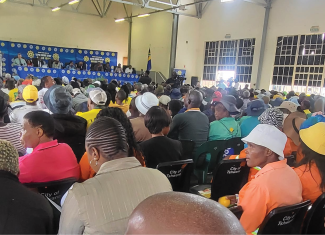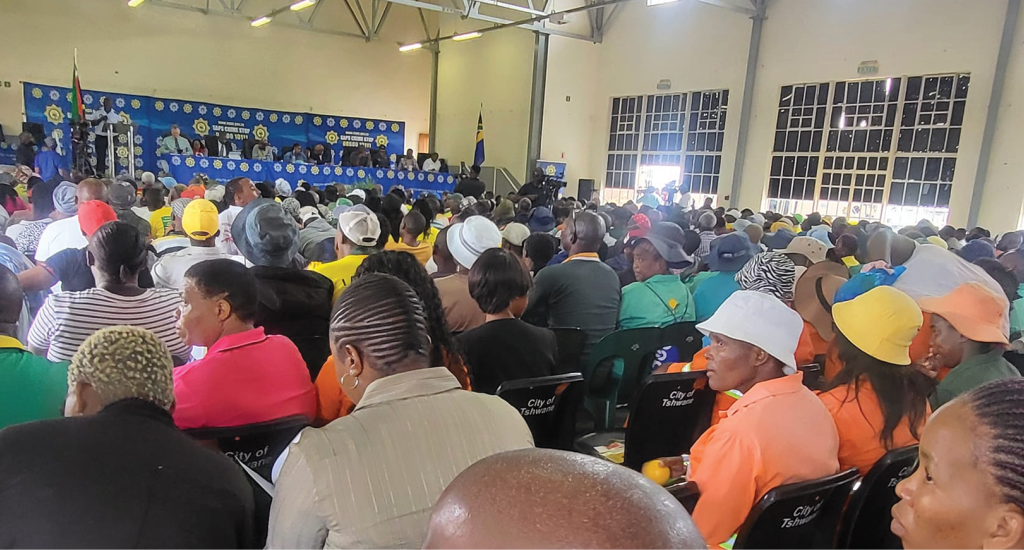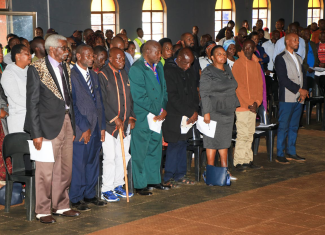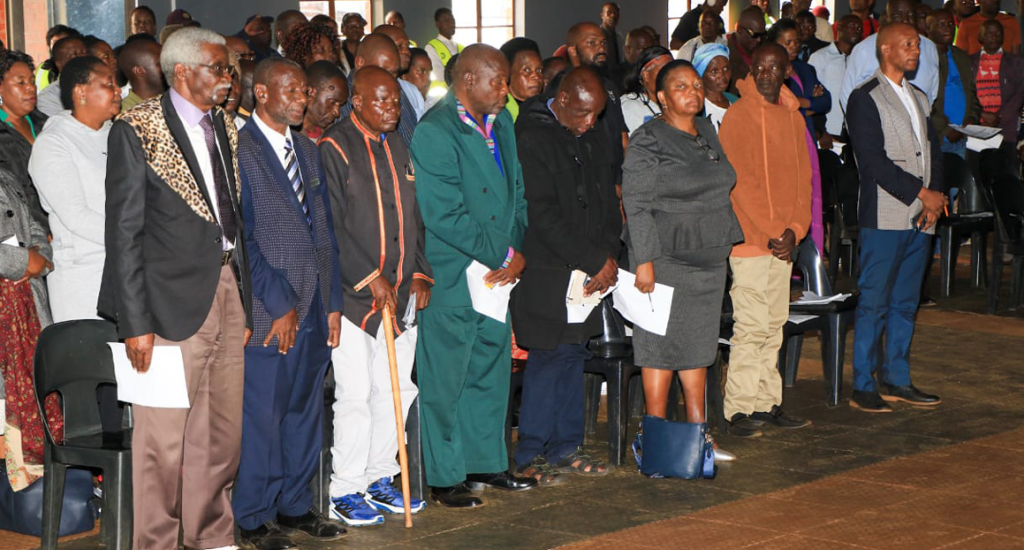The Civilian Secretariat’s
role in making SA safer for all

The National Development Plan Vision 2030 envisions a South Africa where “all people are and feel safe.” To bring this vision to life, the Constitution has established institutions such as the Civilian Secretariat for Police Service (CSPS) to play an oversight role in ensuring police accountability and service delivery.
The CSPS is the watchdog charged with ensuring policing in South Africa is professional, effective and people-centred. “The CSPS is a department that reports to the Ministry of Police and is mandated to provide support and policy advice to the Ministry of Police,” said Thulani Smike Sibuyi, the Secretary for Police Service and Director-General (DG) of the department.
In an interview showcasing the work of the Civilian Secretariat, Sibuyi outlined how the institution fulfils its vital constitutional mandate.
“The CSPS monitors and evaluates the performance of SAPS against planned programmes on policing through promoting accountability and transparency in the service.”
He emphasised the department’s holistic approach to crime prevention: “The CSPS mobilises communities on crime prevention by bridging a gap between the police and the communities”.
Partnering with communities
The CSPS ‘s success relies heavily on strong partnerships with communities. One of its key roles is to support and empower Community Policing Forums (CPFs), which are made up of local community members who work with the police to combat crime and improve safety.
Sibuyi firmly believes that the first line of defence against crime begins with ordinary community members.
“As a community member, you have to take responsibility for your safety and your surroundings. Always be alert [and] report any suspicious activities within your community...Be the eyes and ears in your community. Be intentional about reducing the risk for crime and violence,” he emphasised.
He urged citizens to hold one another accountable for actions that contribute to alcohol and drug abuse, highlighting the need to protect children and young people from psychologically damaging homes and community environments.
Fighting GBVF
South Africa’s battle against gender-based violence and femicide (GBVF) and domestic abuse remains a national priority. In this context, the CSPS plays a pivotal role in ensuring that SAPS members comply with the Domestic Violence Act of 1998.
Sibuyi explained that the CSPS, in collaboration with civil society organisations, provincial secretariats and the SAPS, has held a meeting to address the high rates of domestic and GBVF in the country, focusing on the role of the police in combating these issues.
“We then summarised the Domestic Violence Act [of 1998] and simplified it so that it can be understood by the society and police for the ease of implementation. This document is referred to as the Ministerial Six-Point Plan and it is placed in all police stations throughout the country,” explained the DG. We then summarised the Domestic Violence Act and simplified it so that it can be understood by the society and police for the ease of implementation. This document is referred to as the Ministerial Six-Point Plan and it is placed in all police stations throughout the country.”
The Six-Point Plan
- All victims should be treated with respect, dignity and interviewed by trained police officials in a victim sensitive matter.
- Victims should be assisted at the Victim Friendly Room or an alternative room where the statement will be taken in private at the police station or other location providing victim support service.
- Victims will be referred or taken for medical examination by the healthcare professional to obtain medical evidence and complete medical report.
- The investigation should be or a detective with relevant training.
- The families and victims of sexual offences, femicide and infanticide should be referred to the victim support services that are available within the precinct for legal, medical, social and psychological help.
- Victims should be proactively provided with feedback on the progress of their cases on a continuous basis.
Oversight and accountability
Effective oversight is at the core of the CSPS’s work. Sibuyi elaborated that the CSPS monitors the performance of the police service and regularly assesses how effectively it is implementing policies and systems.
This includes monitoring how the police service utilises its budget to ensure compliance with all policy directives and instructions issued by the Minister.
In addition, the CSPS is tasked with producing reports on the compliance of the SAPS with policy directives and provides recommendations for areas that need improvement.
On cooperation with other oversight bodies, Sibuyi said, “IPID is invited to participate in forums that are relevant to its work. However, it should be noted that by law the CSPS does not play any oversight role over the IPID.”
In light of increasing crime rates in urban areas, the CSPS has supported a collaborative approach. “The Ministry of Police has entered into a cooperation agreement with all the metros in the country,” said Sibuyi. “These agreements are drafted with the aim of adopting an integrated crime fighting approach which involves police and law enforcement agencies in the Metros.”
This strategy involves “the exchange and the sharing of resources in the fight against crime [and includes] special operations by all law enforcement, joint initiatives, plans, interventions and programmes by all spheres of government”. This collaborative approach is already bearing fruits in the Western Cape, Eastern Cape and KwaZulu-Natal.
Strong policies
The DG also explained that the CSPS has developed impactful frameworks like the Integrated Crime and Violence Prevention Strategy (ICVPS), which advocates for a whole-of-government and whole-of-society approach to addressing crime and violence.
This has “ensured that safety is at the centre of planning for economic development and the need to address the triple threat of poverty, inequality and unemployment.”
He added that the framework includes “special operations by all law enforcement, joint initiatives, plans, interventions and programmes by all spheres of government, ” adding that implementation has already begun in the Western Cape, Eastern Cape, and KwaZulu-Natal.
“Implementation mechanisms of the ICVPS such as community safety forums have also ensured that community members are active participants in realising safer communities for all.”
The process begins at policy formulation level. “ To ensure transparency and co-design of policy, stakeholders are consulted at various stages, including at the conceptualisation phase and in the review of the draft policy,” Sibuyi explained.
Through platforms like izimbizo, the department actively engages with the public and values “well-considered written submission in response calls for inputs in the Government Gazette".
Sibuyi added that the CSPS views the State capability and collaboration as central to effectively address South Africa’s development challenges.






